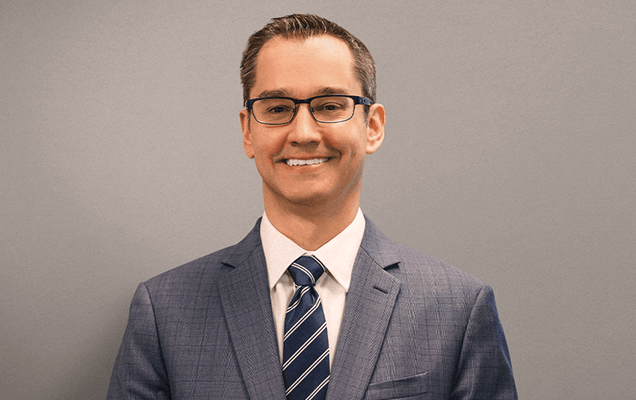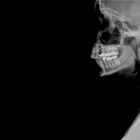If you have been scheduled for pituitary gland tumor surgery, it can be helpful to know beforehand what to expect during your recovery period. It’s great that you are taking the time to self-educate and become comfortable with the process. You’ll likely find you can make some preparations before your surgery to ease your recovery and the simple benefit of knowing what to expect can help provide you peace of mind.
There are two different surgical procedures used to treat pituitary gland tumors: transnasal, transsphenoidal surgery and craniotomy. Because they have slightly different recovery timelines, they will be discussed separately below. Keep in mind that because every patient is different, with varying pituitary gland tumors and health histories, your experience may not be exactly as outlined here.
Recovery Timeline for Transnasal, Transsphenoidal Patients
Patients who have an transnasal, transsphenoidal procedure will have some unique experiences and post-operative instructions based on the fact that the neurosurgeon accesses the tumor through the back of the nose.
Hospital Recovery (Right After Surgery)
Immediately after transnasal, transsphenoidal pituitary gland surgery, you will recover in an intensive-care unit of the hospital, where your healthcare team will monitor your heart rate, blood pressure and respiration as you recover from general anesthesia. Once you have been cleared as stabilized, you will be transferred to your hospital room, where you can expect to spend two to three days.
In the post-operative period, an endocrinologist will evaluate your hormone levels following surgery. During these first few days, you may have a lot of nasal discharge, which can drip down the throat and cause nausea. Many patients are also congested, experience headaches or both. Be sure to let your healthcare team know if you are experiencing these symptoms and they can provide medication to make you more comfortable.
At-home Recovery
Once you are discharged, you will spend approximately four to six weeks recovering at home. Most patients experience minimal pain during this time, but there will be activity restrictions while you heal. These typically include restrictions on lifting any heavy objects, blowing your nose and possibly driving, depending on your individual situation. As your body recovers, your doctor will begin lifting your restrictions until you are finally able to return to your normal activity level.
Recovery Timeline for Craniotomy Patients
Because of the more invasive nature of a craniotomy versus a transnasal, transsphenoidal approach, craniotomy patients will be given different post-operative instructions and may experience slightly more discomfort during the recovery process. However, there are many similarities between the two.
Hospital Recovery (Right After Surgery)
As with the transnasal, transsphenoidal approach, you can expect to spend a total of two to three days in the hospital after your procedure. Immediately after your surgery, you will recover in an intensive care unit and be monitored while you recover from your anesthesia. Rarely, some patients will need to spend longer in the unit and be monitored for fluid balance. Once you are stable, you will recover in your hospital room and be discharged after a few days.
At-home Recovery
Your recovery at home will likely last approximately six weeks, during which you will be put on activity restrictions. Most patients do not require medications, though some may need short-term hormone medications if their tumor was functioning and secreting excess hormone into their blood.
During this time, you may experience some itchiness and discomfort around the incision site. Your doctor will give you instructions on how to care for it, as well as signs of infection to be aware of. You will be able to wash your hair after a few days but will need to avoid swimming and coloring your hair for at least four weeks. Your doctor will give you more instructions that are specific for your individual case.
We are more than surgeons,
we are your support system.
Post-op Visits
Regardless of which procedure you had, you can expect to have post-op visits scheduled every three to six months following your surgery. These visits will include MRIs to image the site, as well as endocrinology consults if you require hormone therapy and ophthalmologist visits if your eyesight was affected. Your doctor will develop a follow-up schedule specifically for you based on your individual case.
Dos and Don’ts
During this time, there are a few key things to keep in mind.
Don’t:
- Start or stop medications without consulting your physician.
- Push yourself beyond your body’s limitations.
- Try to handle everything on your own. You should reach out to family, friends and your doctor as needed.
- Hesitate to ask your doctor a question if you have any concerns at all.
Do:
- Follow all of your doctor’s instructions, including activity restrictions, exactly.
- Maintain a positive attitude and remember to take things one day at a time.
- Keep on top of follow-up appointments.
- Take time to enjoy the things you can do.
Your Recovery Is Unique to You
Every patient is different, so your experience following your pituitary gland tumor surgery is going to be unique. Your doctor will develop specific instructions based on your individual condition and health history and it is vital that you follow those instructions over any that you read elsewhere.Do not become discouraged if your recovery takes a little longer. Remember you are not in this alone and your loved ones and healthcare team are there to support you through this healing process. Take one small step at a time and simply focus on getting better during your recovery.
Do not become discouraged if your recovery takes a little longer. Remember you are not in this alone and your loved ones and healthcare team are there to support you through this healing process. Take one small step at a time and simply focus on getting better during your recovery.

About Dr. William S. Cobb
Dr. William Cobb is an accomplished neurosurgeon in North Jersey and a proud member of Neurosurgeons of New Jersey, practicing out of their Ridgewood office conveniently located on East Ridgewood Avenue. During his Neurological Surgery residency, he became passionate about the development and treatment of brain tumors affecting the brain and spine. Dr. Cobb uses state-of-the-art technology for surgical intervention in the treatment of tumors of the brain and spine including Gamma Knife radiosurgery. He has vast experience in using modern minimally invasive surgery for the treatment of degenerative spine and intervertebral disc disease. Dr. Cobb serves as the Director of Neurosurgical Oncology at Valley Hospital. He's accepting new patients.
Recent Posts:






